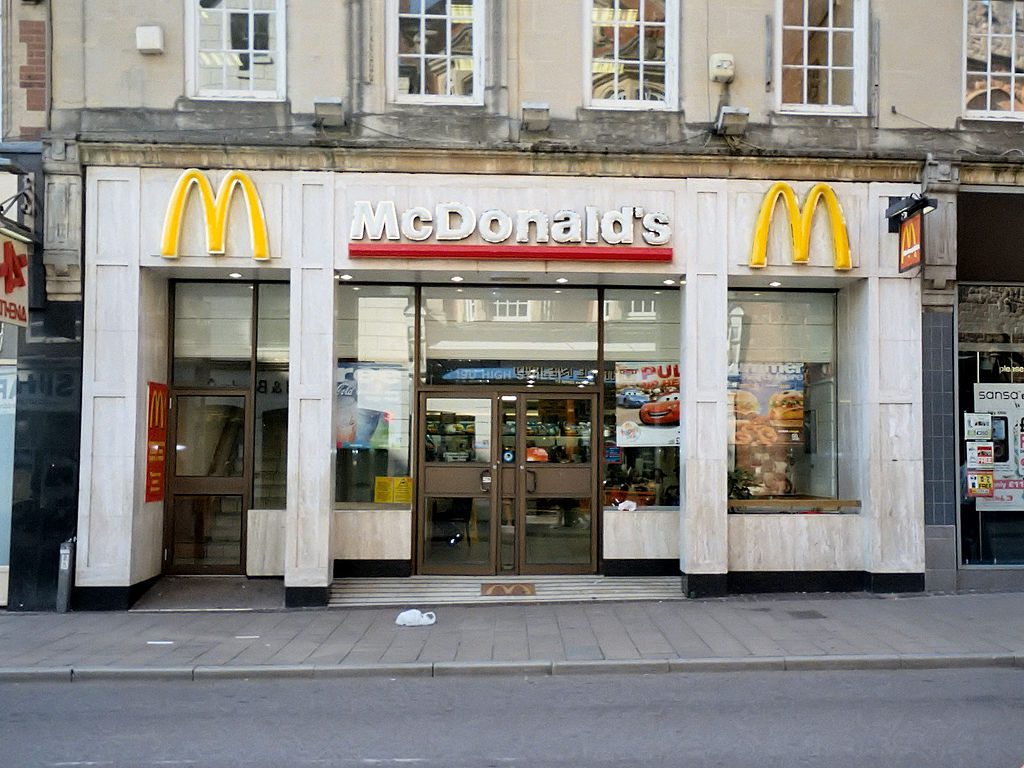
A trend that had been successfully covered up during the pandemic is finally hitting society with full force. Rising costs of living and energy, in combination with the highest rates of inflation in decades, have increasingly led to low-income families being pushed into outright poverty. In Great Britain, the inability to pay energy bills is forcing some families to “seek refuge in McDonald’s restaurants.”
Matthew Cole, chair of the trustees of the Fuel Bank Foundation, a charity trying to help families with their bills, has raised the alarm amidst families spending their evenings at McDonald’s to use their facilities as emergency kitchens, bathrooms, and living rooms. “People are buying their kids a Happy Meal for a few quid and keeping them warm inside. Then they wash and brush their teeth in the sinks and watch television for hours on the free wifi,” Cole told The Guardian.
Other parents in financial distress take their children to leisure centers for showers, with no intention of swimming; some others have taken to burning furniture or wooden pallets to keep warm. 4.5 million households in the UK use prepayment meters, which are “self-disconnecting” once the funds are used up. But remaining cold and in the dark isn’t the only problem.
“Fuel poverty is rarely the only issue. If you’re struggling with heating then you’re likely worrying about food and clothing too,” says Cole. According to the Office for National Statistics, the consumer price index measure of inflation rose to 9% in the 12 months leading up to April 2022. This is the highest inflation rate since 1982, and the Bank of England predicts a further rise up to 10% this year. According to research by Loughborough University, this results in an increase of £400 per month of living costs for an average family with two children. Research by British Gas and YouGov estimates that 40% of UK adults will struggle to make their next payment.
Jessica Taplin, chief executive of the British Gas Energy Trust, an independent charity funded by British Gas, described the severe anxiety experienced by those their charity has supported to The Guardian. An unemployed mother of four was afraid to open emails with bills for fear of taking her life. Other people, like an elderly man from London, would stay in bed anxiously all day when a bill would arrive.
Jo Gilbert of the utility bills advice group, Cubes, calls for government action to solve the problem: “We’re way past using energy-saving tricks at home to limit bills significantly. People need government help now.” Also Peter Matejic of the Joseph Rowntree Foundation thinks the responsibility lies with the government: “Families in poverty are feeling the worst effects of the frightening jumps we are seeing in the cost of living, because more of their budget goes on essential items and their incomes just can’t keep up. The government has the power to close the gap by uprating benefits now, ensuring that the worst off are not pulled under.” Peter Benson, of the North East Bylines, however demands “a windfall tax on the oil companies who are making abnormally high profits.” Whatever the solution will be, it appears that most suggestions are centered around the idea of ‘more government.’ It remains to be seen, when and at what cost an alleviation of financial burdens will take place.
